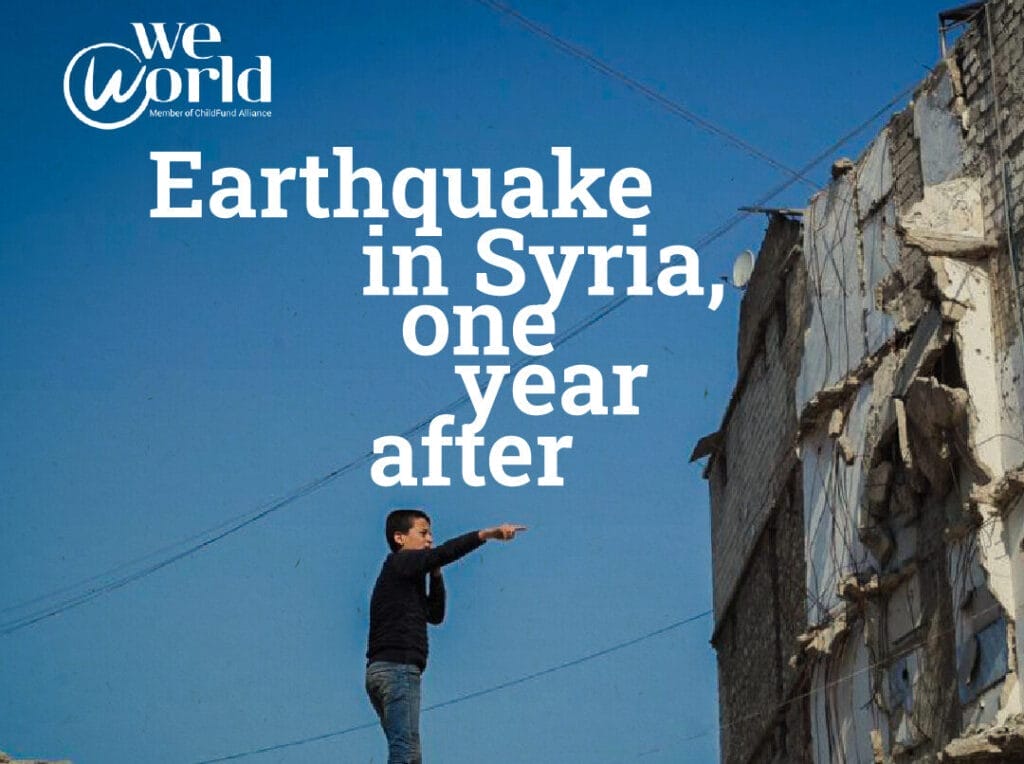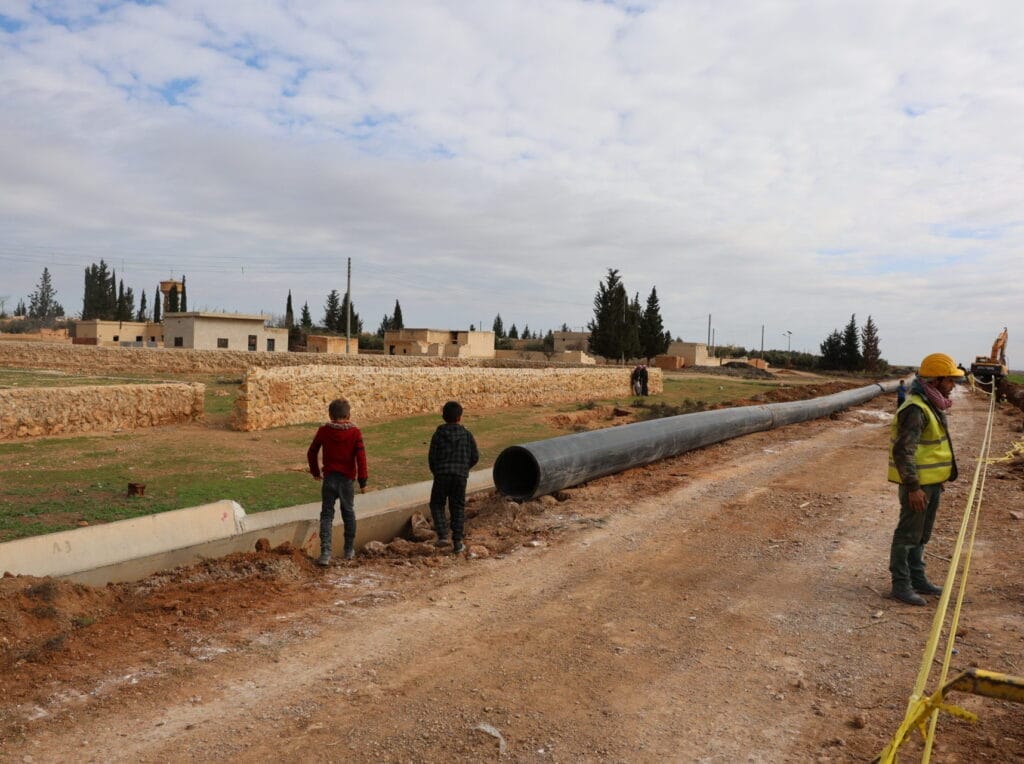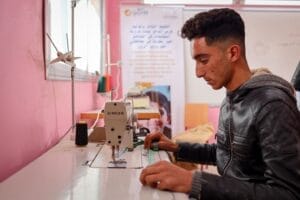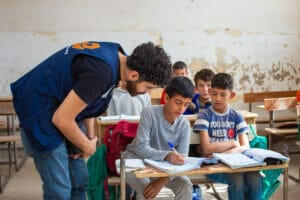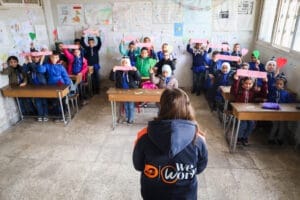
On February 6th of last year, a magnitude 7.8 earthquake struck in Turkey and Syria, causing the death of tens of thousands and razing thousands of buildings to the ground. However, it did not only bring terrible losses and damage, but in Syria it exacerbated an already dire situation due to the 12-year-long protracted crisis and the ongoing economic one, which deteriorated significantly livelihoods and the access to basic services.
A year later, the population still bears the weight of the consequences of the earthquake on its shoulders, from the psychological ones to the impacts on water provision and the infrastructural damage, accompanied by the acute rise in prices. Such impacts have been greater on rural and isolated communities.
With the support of ChildFund Korea and the Community Chest of Korea, we are contributing to restore access to safe drinking and domestic water and promote good hygiene practices preventing diseases outbreaks in Aleppo City and in remote areas of rural Aleppo affected by the earthquake.
In the rural areas of Aleppo, where people are mostly employed in agriculture, the earthquake had a devastating impact: “most of the irrigation pipes that used to reach the lands were severely damaged” says Hamoud, a 49-year-old farmer.

“The earthquake greatly affected groundwater. In the previous season, many farmers lost their livelihood because of wells drying up as a result of the earthquake because groundwater became very deep in the ground” adds Muhammad, a 50-year-old retired school principal who currently works in the field of agriculture. “In agriculture, frankly, the only thing that motivates us to survive is hope, only hope for a more beautiful tomorrow”.

However, the impacts were not only infrastructural. Fatima, a 60-year-old woman, tells us how the earthquake terrified the children, who are still today reacting with fear to any strong sound. She currently shares a house with another family, for a total of 13 people living together, and the lack of water forces them to spend money on fuel, to fill the tanks, and sometimes they need to drink the water from the well, even if it is not suitable for human consumption.

“The situation is bad, and children need special courses due to poor education and the shortage of teachers in the village”.
Teachers are not able to reach the villages in rural Aleppo due to high transportation fees. Fatima, a 28-year-sld geography teacher can testify to this harsh situation: she works in a school that is 35 km away from her house and she spends daily an elevated sum to reach it.
The costs of education are a burden also for families: not all can afford them. Adbul, the head of the town council of Abu Green village, says that this year he might be forced to sell part of his land and his car in order to pay the education of his only child. When he returned to his village in 2016, he owned 25 sheep and 4 cows. Over the years, the economic strains forced him to sell them all.

A year later, from the shortage of water to the difficult economic situation and the psychological outcomes, the people who live in the areas affected by the earthquake are struggling with compounding needs and the efforts to meet them are still necessary.

